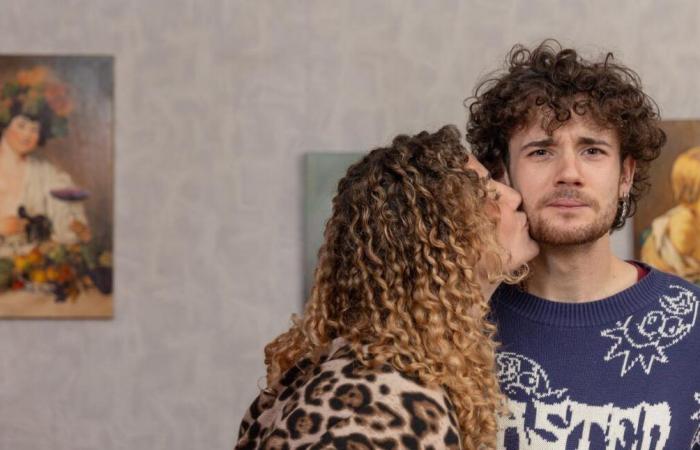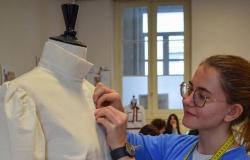Et you in the morning, when you arrive at work, how do you say hello? Are you one of the last defenders of the kiss? Since the pandemic, it is on the verge of disappearing if we believe the figures: according to a study carried out by Qapa, in 2022, only 10% of French people will place their lips on the cheek of their colleagues. 90% boycotted it in 2022, more than in 2020 (72%), and a little less than in 2021 (91%). While, for its part, the handshake made a timid breakthrough.
But the pandemic is not solely responsible for the transformation of our civilities, explains Fabienne Martin-Juchat Uga, university professor of communication sciences, and researcher specializing in the anthropology of bodily and emotional communication at Grenoble Alpes University. Interview.
Fabienne Martin-Juchat has been conducting research on bodily and emotional communication for thirty years. She also published a scientific article entitled “The experience of touches of the world” for “La Revue française de yoga”
PERSONAL COLLECTION
By forbidding ourselves from touching, we prevent ourselves from accessing a way of meeting the other which provides a lot of information.
The pandemic, and the introduction of barrier gestures, has changed the way we greet each other. What about in 2025?
People touch each other less and less. At the time of the pandemic, I had already written on the subject, in the books “The Adventure of the Body”, and in “Triste Distance”, sensing what was happening: bodily distance has increased, everywhere. Kisses, hugs, checks, or handshakes have almost disappeared from the social sphere. There is clearly a before and after Covid.
Is it irreversible?
It is always interesting, in transformation phenomena, to analyze causal relationships. Concerning touch, and the way of greeting each other, there was certainly this fear of other people’s bodies linked to the risk of contamination. But not only that: the #MeToo movement was added to this context. With the issue of consent, the attack on bodily integrity is felt more quickly. For example, at university, when I work with a student, I have to ask his permission to touch his shoulder, so that he does not feel attacked. This transformation of bodily ownership is truly new, except that the relationship with others and empathy necessarily pass through the capacity to be experienced bodily by them. Finally, the pandemic has also accelerated long-distance relationships, reducing face-to-face relationships.
These are therefore three different factors which have lastingly transformed our practices. We thought that the “pandemic” effect would pass, but the two other factors were added. So it’s hard to say that there will be a step back…
What does this change?
Potentially, this distancing prevents us from feeling. When our relationship with others is constantly mediated by technology, we are more likely to make errors of interpretation. We have within us a bodily capacity to feel the emotions of the world, of plants, animals and humans, because we are mammals. And it is through our body that we feel it, this is what we call intercorporeality.
So with distancing, part of the relationship with the other is denied?
Let’s say that by forbidding ourselves from touching, we prevent ourselves from accessing a way of meeting the other which provides a lot of information. It’s as if you arrived in a forest blindfolded and with your hands behind your back. To understand and experience a relationship, you must experience it as a child does. For people who are already built, this is not a problem, but for young people, in terms of education, it is the learning of relationships that is at stake.
Do you mean that relationships with others are learned through the body?
-The human relationship is an experiential relationship that involves intercorporeality. Fortunately, young people go to nightclubs to physically confront each other. Otherwise, there is a whole part of human language – non-verbal and emotional language – that they could not master. Knowing that the intercorporeal relationship is also useful for reassurance: physical contact soothes tensions and anxieties, this is now known. Hence the importance of carrying your child in your arms. The intercorporeal security base allows the construction of consciousness and then linguistic awareness. If there is not this base, the person is unbalanced.
Would the return of the kiss be beneficial?
Let us already recall the meaning of salvation. It is used to say: “I see you, you see me, we are in a relationship, and I am not going to attack you, I am not your enemy. » This is the basis of human interaction. Everything face to face is a risk as in the animal world. Also, to deactivate this risk, immediately say hello: greeting is a basic act of sociality. It seems innocuous, but it is foundational.
Today, these acts of civility tend to disappear as if there was no need to respect the co-presence of others. In public spaces, everyone is in their own bubble, behind their phone, headphones in their ears, muted. This is problematic because real moments of co-presence are disappearing overall, the moments of sociality that we had at work have disappeared. We are behind a screen, there is no more discussion at the coffee machine; work gradually becomes a kind of remote coordination, and we lose the habit of greeting. A banal habit but in which something crucial is at stake: maintaining social ties.
Public spaces and work become completely dry areas
Is it serious?
It doesn’t matter if intercorporeality disappears in public space, provided that it is experienced somewhere because it is vital: it is part of our basis of humanity. But suddenly, the fact of moving this bodily experience to the private sphere, to the microcommunity, the family, the friends, its ecosystem, induces a risk of communitarianism, a withdrawal. Conversely, public spaces and work become completely dried out areas.
Some continue to wear masks, on public transport, in elevators. What does it say?
The fear of the other remained. We had an ideal of public space in mind, an ideal of society where there were intercorporeal encounters, with a real richness of sociality that was experienced everywhere. Today, this sociality is more fragmented, piecemeal, reserved for microcommunities.







